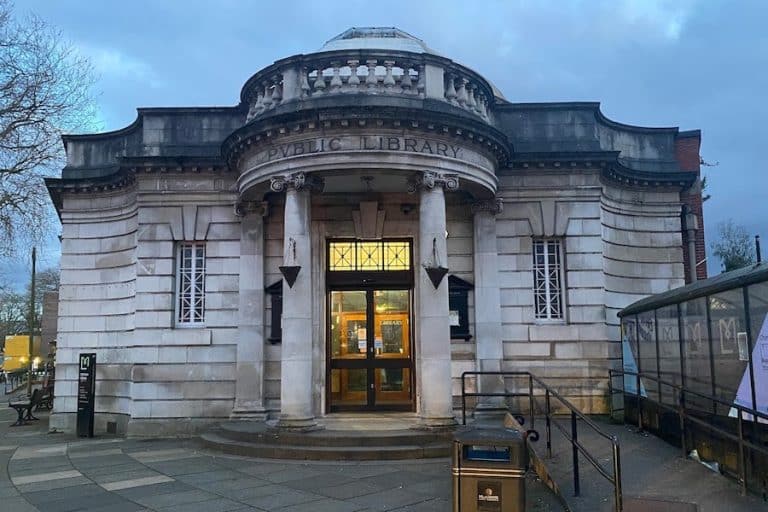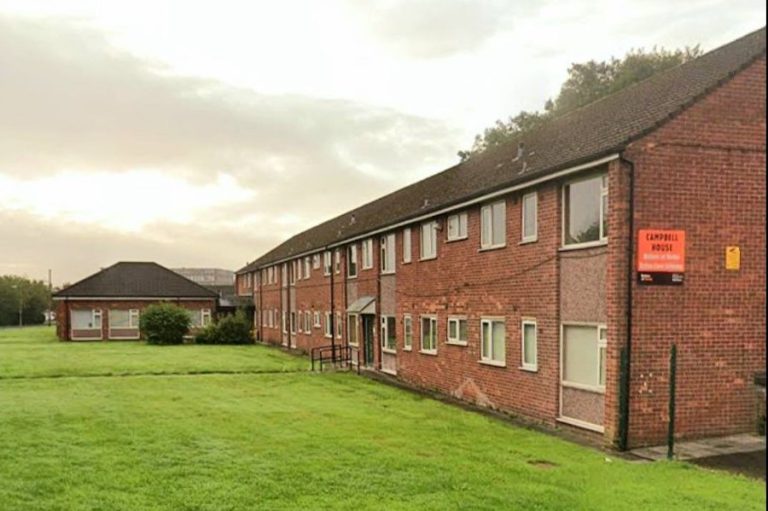Obscenity and the arts: why Anthony Burgess’s lecture on censorship has reignited a vital debate
- Written by Louise Rhind-Tutt
- Last updated 7 years ago
- Books, City of Manchester

Freedom of speech is considered one of the most important modern democratic values. It’s something that is frequently discussed in an age of social media, with so many people having a platform to air opinions.
But with it comes great responsibility. And also the looming shadow of censorship, and what is considered acceptable.
It’s an issue which is often raised when it comes to literature and the arts, and especially when deciding what might be deemed offensive or pornographic. And it’s an issue which was particularly important to Manchester author Anthony Burgess.
In October 1968, Anthony Burgess married his second wife, Liana Macellari, and decided to leave England for good. They bought an eighteenth-century palazzo in Malta and packed up their possessions, including Burgess’s extensive library.
But when they arrived in Malta, the author of A Clockwork Orange was horrified to discover that 47 of his books had been seized by the Ministry of Trade, Industry and Agriculture because they were thought to be indecent.
Among them were literary novels by Angela Carter, Kingsley Amis and D.H. Lawrence. Burgess was given a receipt for the confiscated books, which were driven under police escort to the hospital and incinerated.
The Maltese authorities’ ban on importing books also caught titles such as Desmond Morris’s The Naked Ape and Ian Fleming’s James Bond novels. Such was the severity of censorship there in the 1960s that medical textbooks and scholarly works of anthropology were regularly disposed of, along with magazines carrying adverts for bikinis.
In some cases, the authorities appeared to be motivated less by the content of the titles than by their packaging and titles. Any books whose covers suggested that morally polluting content lay within were confiscated.
When Burgess spoke out against Maltese censorship in a famous lecture, Obscenity and the Arts, at the University of Malta, the government responded by confiscating his house.
Burgess felt so bitter about the action that he never returned, choosing to write about the experience in novels such as MF and Earthly Powers.
Now, the lecture that landed the author in hot water with the Maltese authorities in 1970 is being published for the first time, alongside previously unseen photographs, by an independent Manchester publisher.
Obscenity & the Arts is based around tumultuous events 50 years ago that still resound around the world today. Raising questions about pornography, censorship and freedom of speech, it’s a timely work by one of Britain’s most internationally acclaimed authors.
In the lecture, Burgess argues that obscenity and pornography should be judged according to literary merit.
The author begins provocatively by describing “the vast numbers of dirty books which prevail here in people’s homes, in schools, and in universities” in Malta – one gruesome work, in particular.
“It’s a story about a woman who hates a man and determines to take revenge on him,” he says. “She arranges for her two sons to rape the married daughter of the man, and before raping her, to murder her husband. This they do, using the corpse of the man as a pillow on which to execute the double rape.”
Following the attack, “they cut the girl’s tongue out and cut off her hands so she can neither write nor utter the names of her assailants.”
It’s a stomach-churning tale, which also includes the father killing the duo and baking their flesh into a pie, which he then serves to their mother. Horrifying, nightmarish stuff.
But your school or university almost certainly had several copies. And chances are, there’s probably a copy at your local library. It’s Shakespeare’s Titus Andronicus.
In a move guaranteed to provoke his religious audience, Burgess cited a range of texts, including the Song of Songs in the Old Testament, to argue against banning books, quoting John Milton’s 1644 anti-censorship pamphlet, Areopagitica, that to destroy a good book is to kill reason.
In short, banning books is a slippery slope. Where would it end?
In the new book, the lecture is framed by an essay on the cultural context by his biographer Professor Andrew Biswell, professor of English at Manchester Metropolitan University, and a lively critique by Dr Germaine Greer, who was herself involved in counter-cultural debates on pornography around the same time.
“Burgess was born in 1917, and more than a hundred years later it is difficult for us to remember how repressive British society was during the first fifty years of his life,” writes Biswell.
“The public art galleries of London, Birmingham and Manchester were regularly visited by plain-clothes detectives on the lookout for potentially ‘obscene’ paintings, which could be confiscated and destroyed at the discretion of the police.”
And if that seems dated, it’s only this year that similar arguments have reignited the debates around art, pornography and censorship in Manchester.
Take the removal of the painting Hylas and the Nymphs by John William Waterhouse at Manchester Art Gallery, which was temporarily removed from display as part of a project the gallery was working on with the artist Sonia Boyce in January.
A removal which itself caused accusations of censorship and opened a conversation about how works of art are interpreted and displayed.
Burgess was famously prescient, and this timely publication speaks to modern concerns about censorship and freedom of speech. It resonates today as much as ever.
Obscenity & The Arts is published today by Pariah Press.
- This article was last updated 7 years ago.
- It was first published on 3 September 2018 and is subject to be updated from time to time. Please refresh or return to see the latest version.
Did we miss something? Let us know: press@ilovemanchester.com
Want to be the first to receive all the latest news stories, what’s on and events from the heart of Manchester? Sign up here.
Manchester is a successful city, but many people suffer. I Love Manchester helps raise awareness and funds to help improve the lives and prospects of people across Greater Manchester – and we can’t do it without your help. So please support us with what you can so we can continue to spread the love. Thank you in advance!
An email you’ll love. Subscribe to our newsletter to get the latest news stories delivered direct to your inbox.
Got a story worth sharing?
What’s the story? We are all ears when it comes to positive news and inspiring stories. You can send story ideas to press@ilovemanchester.com
While we can’t guarantee to publish everything, we will always consider any enquiry or idea that promotes:
- Independent new openings
- Human interest
- Not-for-profit organisations
- Community Interest Companies (CiCs) and projects
- Charities and charitable initiatives
- Affordability and offers saving people over 20%
For anything else, don’t hesitate to get in touch with us about advertorials (from £350+VAT) and advertising opportunities: advertise@ilovemanchester.com

Chorlton Library gets a stunning renovation unveiling hidden treasures

How one selfless act sparked a career dedicated to saving lives

Former sheltered housing transformed into safe haven for vulnerable youth


Manchester and Los Angeles prove that opposites really do attract
















